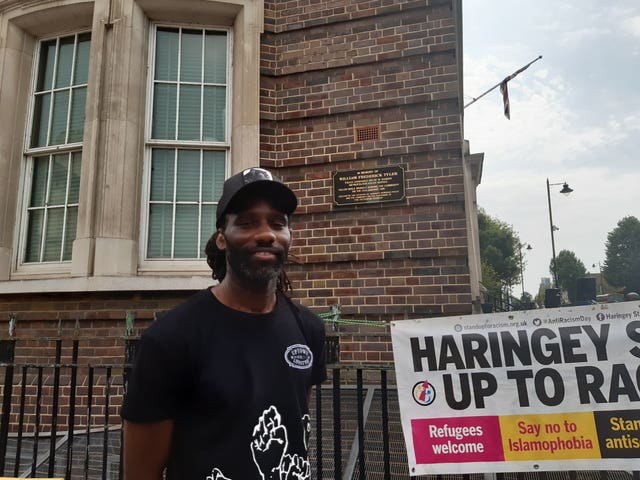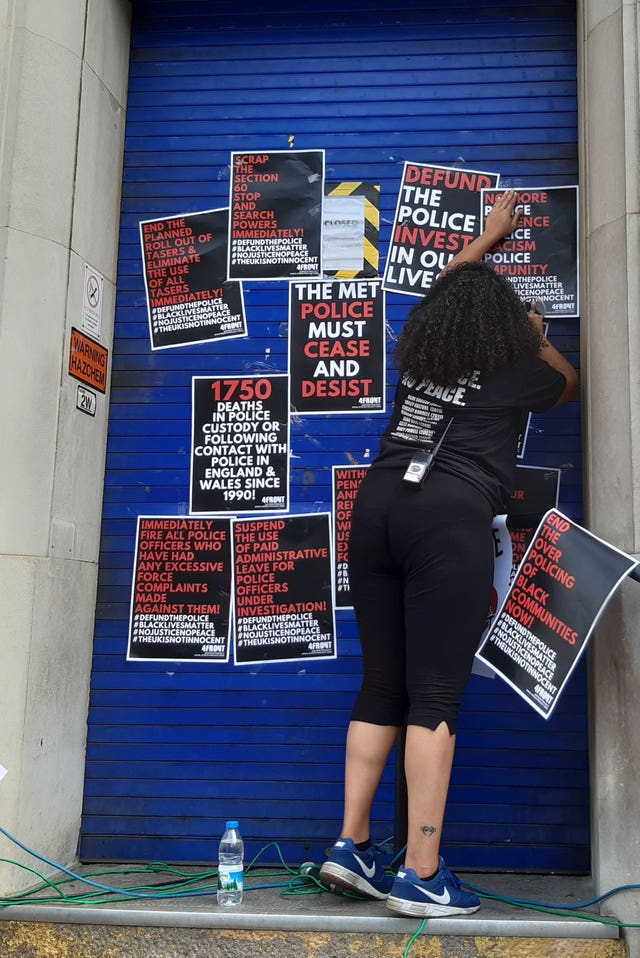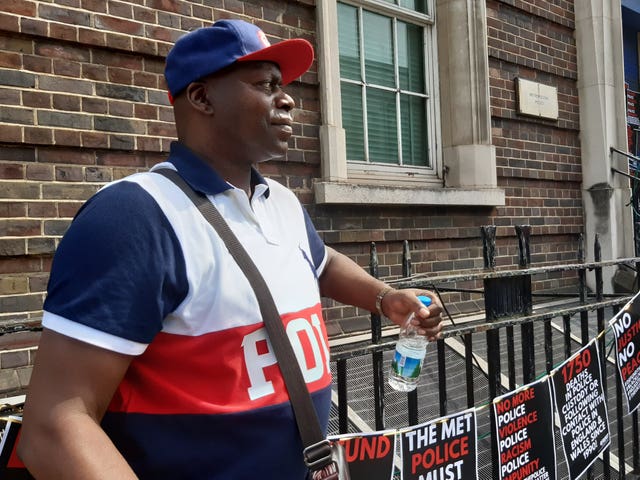Rapper Wretch 32, whose father was Tasered by police officers, has said that black people are “over-policed and under-protected”.
The 35-year-old musician was speaking as he stood next to his father Millard Scott, 62, at a demonstration outside Tottenham Police Station, north London.
Watched by uniformed officers, hundreds of people turned up in the scorching temperatures at the police station to support the musician and to peacefully protest against racism in the police force and violence in Britain.
Wretch 32, whose real name is Jermaine Scott, had previously posted a video on Twitter of his father Millard Scott, 62, falling downstairs after being Tasered by officers.

“I feel that as a community, as a people, that we are over-policed and under-protected.
“We don’t feel protected. My dad did not feel protected. The police are supposed to protect and serve. When they came into the house, what exactly were they serving with that Taser?”
He said people have “no trust in the system” and it is a struggle with the police which the community faced since he was a child.
Then, putting an arm around his father, he said: “My dad stands here today. In my eyes he is lucky to be alive.”
Wretch 32 posted footage online in June which showed his father tumbling downstairs at his north London home after an officer was heard to warn: “Police officer with a Taser. Stay where you are.”

Wretch 32 added: “I will use my platform if it kills me and I think all of us here have a duty to fight.”
The crowd called for officers to stop what they see as the overpolicing of black communities, along with the use of excessive force, tasers, stop and search and the disproportionate use of handcuffing during arrest.
A long list of the names of some people – both black and white and stretching back to the 1980s – who have died after coming into contact with the police were pinned to a barrier outside the station.
The banners called for “justice” for Cynthia Jarrett, Joy Gardner, Mark Duggan, Smiley Culture, Roger Sylvester, Ian Tomlinson and Jean Charles de Menezes.
Many bereaved relatives had supported the demonstration but were now too old to come out to the streets to protest, organisers said.
Messages which read “the Met Police must cease and desist” along with “defund the police, invest in our lives” were pinned to a door at the police station.
He had been playing with a toy gun.
Suspicions had been raised by a passer-by who said they saw a black male holding a firearm on the sofa.
She said: “I worry now what his relationship is going to be with the police – that sense of distrust. Stop criminalising our children.”
The 1985 Tottenham riots began when Broadwater Farm resident Cynthia Jarrett died of heart failure after four policemen burst into her home during a raid on October 5 1985.
Her son Patrick fought back tears as he said: “I get emotional when I think about my mother because I love her.
My family would love to see you at our peaceful protest this Saturday outside Tottenham police station. We have a list of demands that we’ve taken to the higher ups but want to reiterate them on the ground. Please feel 3 2 come, share & repost – any support will be appreciated pic.twitter.com/r3DqzyOQNI
— Rapthology (@Wretch32) August 3, 2020
“We have all got to stick together and keep on marching. We have got to keep on protesting because this is for all of our kids and our future. They can tear down your family from top to bottom.”
Winston Silcott became known as one of the Tottenham Three, alongside Engin Raghip and Mark Braithwaite, when they were convicted in 1987 of Pc Keith Blakelock’s murder during the riots.
Their convictions were quashed by the Court of Appeal in 1991, after questions were raised about the way police interviews were carried out.
Mr Silcott was helping to steward the demonstration.
The police watchdog, the Independent Office for Police Conduct, has said it would not investigate the incident involving Wretch 32’s father and the matter should be dealt with within the Metropolitan Police “in a reasonable and proportionate matter.”
The police said that no further action is being taken as there is no public complaint and no indication of misconduct.

Metropolitan Police Commander Treena Fleming said: “I can understand why any use of Taser can look alarming, and why it did look alarming in this case.
“We never underestimate the impact such an incident can have on a family and the wider community.”
She said officers “are highly trained to engage, explain and try to resolve situations, using force only when absolutely necessary”.






